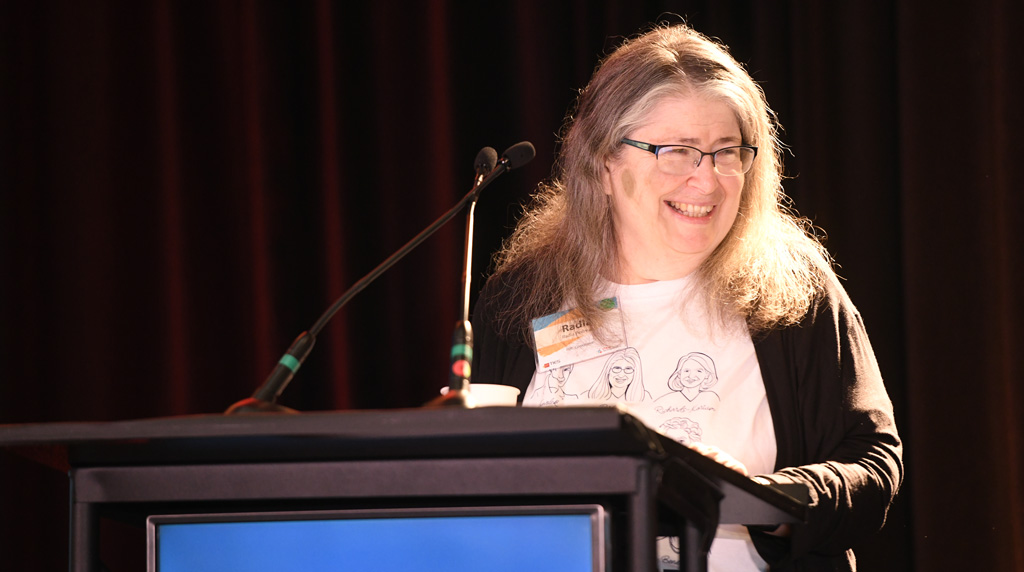Global convening leads with curiosity and collaboration based models of education and community engagement

SAN ANTONIO – San Antonio Mayor Ron Nirenberg Tuesday told more than 500 members of the STEM Learning Ecosystems Community of Practice that “Here in San Antonio, Science dictates policy.”
His comments came a day after he declared that the city was in a state of emergency due to what he called missteps by the Centers for Disease Control for releasing a patient into the general public who had tested positive for the COVID-19 illness.
“When it comes to matters of public health, we will always be guided by medicine and science,” he said.
Nirenberg’s comments were one of more than a dozen mainstage presentations Tuesday, the second day of the bi-annual convening, “The Future is Here: Embracing it Together.”
Dominant themes of Tuesday included reminders about educating children to tackle the grand challenges facing the world, including epidemics.
The Power of Collaboration
Speakers stressed the importance of collaboration to meet learning needs for future economic growth and of not underestimating students’ abilities. Leaders also recognized that families sometimes don’t have any idea how to support their children’s educations.
San Antonio Superintendent Pedro Martinez explained that more than 90 percent of the students who attend his school live in poverty and come from families that have no idea how to support their children’s educations.
“It’s not that my parents don’t care about their child’s learning. They just don’t know what they don’t know,” he said.
This, he said, is where ecosystems must step in and work to support families with meaningful and practical strategies to better support their students. He emphasized the power of cross-sector collaboration, a pillar of the global STEM Learning Ecosystems initiative. Such collaboration includes cross-sector partners from a wide variety of industries and sectors all working for shared common goals around improving students’ experiences.
“We have an open door to industry partners and higher education partners. To put all of this on our teachers is not fair. It has to be a community partnership,” he explained, noting that his school district was once failing and is now considered a leading system in Texas.
Martinez participated in a mainstage discussion with Donna DeSiato, superintendent of the Syracuse Minoa School District. Moderated by John Fitzpatrick, president of Educate Texas, the two superintendents touched on issues of equity and access in STEM education.
DeSiato said the ecosystem operating in her community has helped lead a wholesale transformation of the entire district into one that is focused on STEM and principles guiding it.
“We have had an entire paradigm shift,” she said, explaining that all schools in her district have become STEM schools.
Citing how there are no bells to signal students to move from class to class in middle school, she explained that students need to understand how to manage their own time and be in charge of their own learning.
The model of education that DeSiato is offering in East Syracuse Minoa is far more in line with what morning keynote speaker and inventor Radia Perlman explained is needed in order to foster invention and imagination.
“My superpower is having no memory at all,” Radia Perlman told the group. “I had to deeply understand everything instead of memorizing.”
Perlman, who invented key protocols that shaped and advanced the Internet, was inducted into the National Inventors Hall of Fame which sponsored her remarks to the group.
Perlman explained that stereotypes can negatively affect the numbers of women and people of color who enter STEM disciplines.
“Everyone has this notion that an engineer is someone who took stuff apart when they were little,” she said. “I never took stuff apart. I went to college not knowing how to change a light bulb.”
Perlman said teachers must be recognized and appreciated but also retrained with better strategies for supporting creativity.
The San Antonio Convening also featured news from global convening co-host, Movimiento STEM. In Mexico, Movimiento STEM will be recognizing the country’s leading teacher with a prize of $1 million pesos. The prize, sponsored by the Varkey Foundation, will be awarded later in 2020. Find out more about the National Teacher Prize Mexico click here.

